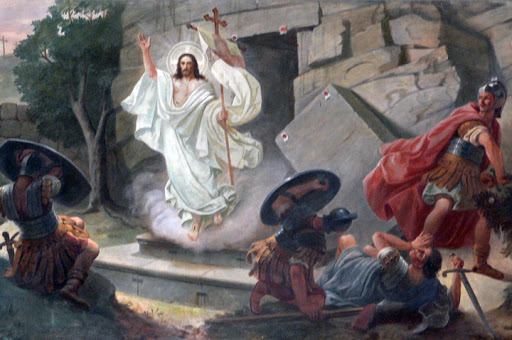There is a place called Marathon, and the race known as a marathon is named after that place.
The importance of that place is that there was a battle that took place there, between the Greeks and the Persians. A battle that was very much up in the air as to who would win. As it turns out, the Greek forces ended up winning a fairly decisive victory over the Perisans, who were defeated and driven back.
Now, back in the day, you couldn't just tune into the news, or follow Twitter to see what the results would be. You had to wait for a messenger.
In the case of the battle of Marathon, the messenger was one Phippides. Philippides was tasked with bringing the news of the win at the battle of Marathon to the Athenians. Again, there was no twitter, no radio, no telegram, no telegram, no television, that sort of thing. You had to make do with runners and messengers. And so Philippides was said to have brought the message all the way from Marathon to Athens, to let them know of the triumphant win. Now, how far was Marathon from Athens? Roughly 40km. How far is a modern Marathon race? Just a little over 40 km. It's named for this event. Now, Philippides was said to have collapsed and died upon completion of his famous run, and anyone who has run a marathon in their lives would largely relate to that result. But that race, that run was vital to convey news to people who were desperate to hear about the results of the battle. Philippides saying 'Joy, for we have won!' is a greeting that they were desperate to hear, and which they could only get through messengers.
The Bible asks a great question, which is to say 'how will they believe unless they have heard? And how will they hear with nobody to proclaim?' Paul communicates in Romans that if people are to hear news, someone is going to have to bring that news to them. If people are to believe in something, someone must be tasked to bring that to them. And for us, as Christians, that somebody is Mark.
Mark, the Gospel writer, gets his Gospel out to the world extremely quickly. His Gospel is the one that is written first, submitted first, and is the first written account of the life of Christ known to exist. It is Mark's Gospel that was brought to the ends of the earth first, and its length and structure embody that. Mark's Gospel is the one that moves quickly, both in narrative and in global reach. Mark's Gospel starts right away with John the Baptist proclaiming repentance. It doesn't start with a family tree, nor with research notes, nor with the mystical pre-incarnate Christ. It starts with repentance, and the arrival of Christ.
In our day, we have become accustomed to instant communication. We are very used to the idea that if something isn't recorded right away, then it didn't happen. And Mark's Gospel is a problem for that, given that the events that it describes (the life and death and resurrection of Jesus Christ) are recorded by Mark a good thirty years after they happened. That's bad, right? Like it's a really big problem that the most contemporary account of Jesus is 30 years after the event? Well, to put it into perspective, Hannibal, the Carthaginian general who threatened Rome, is written about in Livy's 'Roman History.' The Punic war featuring Hannibal was in 201 BC. Livy wrote in 31 BC. That's close to a 200 year difference, and Hannibal is considered to be well known, and well attested to. Part of what you have to get over is writing the present onto the past, and making standards for the Bible that you wouldn't make for any other ancient information. Writings about Socrates are typically in the same sort of timeframe as the Gospel of Mark, and we all consider those to be relatively authoritative, and that they speak of a real person who taught real things. Mark's Gospel is actually insanely early, and very well distributed, especially given that it tells the story of a Jewish preacher from the backwaters of the Empire.
So why is Mark's Gospel so comparatively early? Well, because Mark has important things to say. Mark really wants to get what he has to say out to you remarkably quickly and efficiently. He does this because of what is said in our Old Testament reading.
Just like Athens waiting for the news of the battle of Marathon, the world was waiting for news of the Messiah. Israel, but also the entire world, was waiting with bated breath for news of the victory won through Jesus Christ. A world groaning in their sins, sitting under the weight of death, was waiting earnestly for news of salvation, and it came to them first through the Gospel of Mark. Mark's message is too big to fit in a single tweet, of course, but it does come down to the same message: Joy, for we have won. Christ is victorious, sin and the devil are defeated. A world that knows that it needs salvation is desperate for this news, and Mark brings it quickly out to a tired and needy world.
Just like Philippides' feet being beautiful because of the news they brought, not because they would necessarily be beautiful after a 42 km run, so too are the feet of Mark beautiful because of the message that they bring. Good News of salvation! Good news of life for a world that needs to hear it. The speed of Mark's gospel is equivalent to the marathon run, where someone is willing to run a message to the world all night if necessary, so that the watchmen, including you and I, can rejoice at the news. Joy, for Christ has won. Joy, for we have won.






